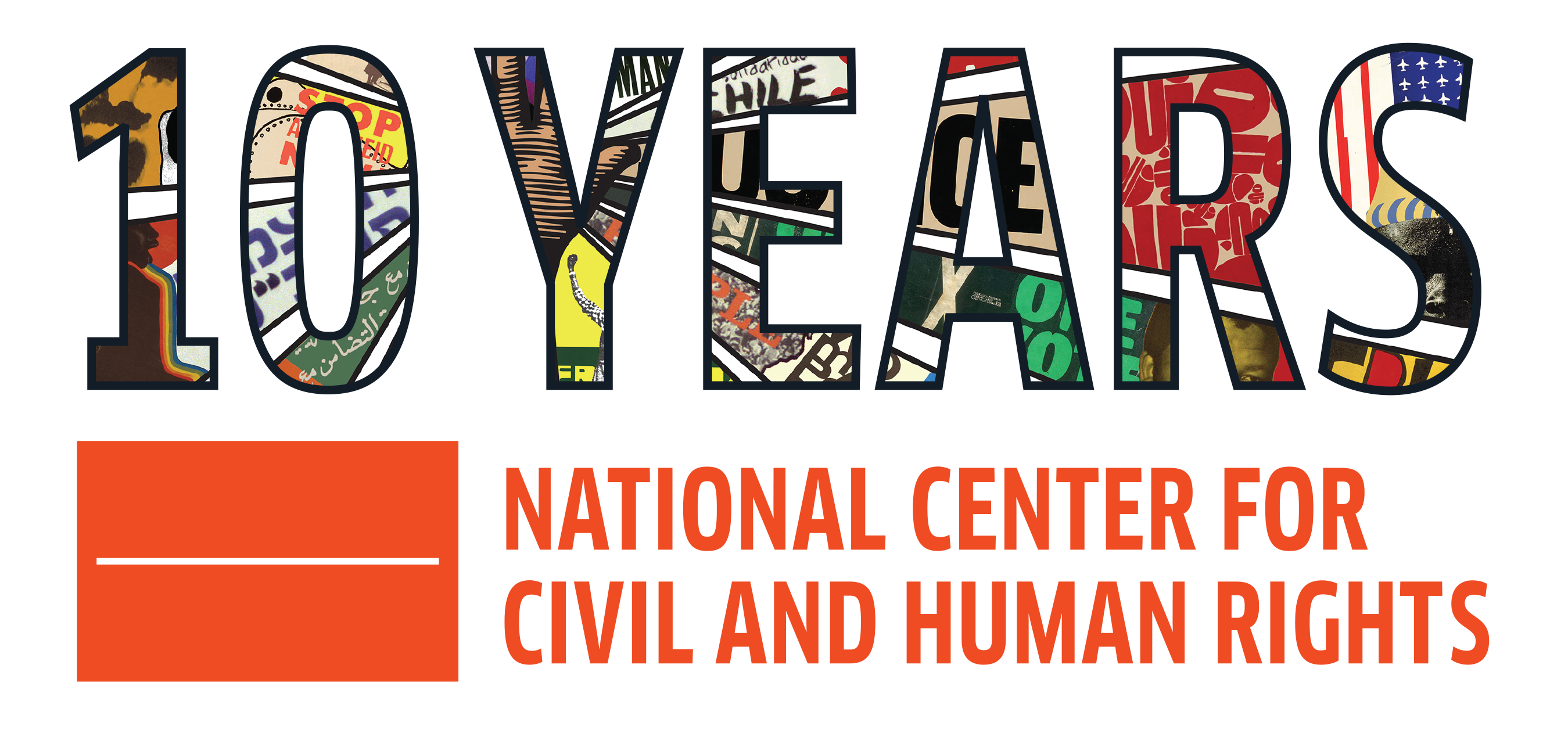Human Rights Groups Launch Course to Train Police on Protecting Rights and Serving Communities in a Deeply Divided Society
Atlanta Police Department is first in nation to train its entire force — and participate in a year-long program of police and community members meeting for dinner
The National Center for Civil and Human Rights (The Center) and Auschwitz Institute for the Prevention of Genocide and Mass Atrocities (AIPG) have developed an online training program for U.S. law enforcement to deepen understanding of civil and human rights in policing.
The entire Atlanta Police Department (APD) will be trained by March 2022, underwritten by the Atlanta Police Foundation (APF). APD is the first department in the nation to train its entire force with this human rights course. Atlanta Mayor Keisha Lance Bottoms made the training mandatory for all APD, part of the City’s comprehensive police reform plan known as One Atlanta, One APD.
This new human rights training is a virtual version of the highly-regarded National Law Enforcement Seminar the partner organizations offered in person from 2017 to 2019. Due to the pandemic and due to increased demand for a response to racial injustices in the summer of 2020, the partners created an expanded online version of the training with investments from the Robert W. Woodruff Foundation and Gallagher.
The pilot phase of the course included officers and leaders from departments around the country, among them Baltimore, Houston, Los Angeles, Portland, Phoenix, Seattle, and Miami and campus police departments from Georgia Tech, Emory University, SUNY Binghamton, and Ohio State University.
The training has two versions, one for officers (two-weeks), and one for leaders (six-weeks). Each course explores topics with animations, short videos, readings and discussion boards. Both courses are offered asynchronously and require four hours of study and discussion each week. An instructor facilitates discussions and provides feedback. Both courses:
- Emphasize how the promotion and protection of civil and human rights by law enforcement helps prevent human rights abuse.
- Teach the history of policing in the United States, featuring this animation.
- Present systemic features of racism embedded in policing structures.
- Explain how implicit bias operates and how it impacts individual decision-making.
- Address challenges facing police serving multi-cultural communities in a deeply divided society.
- Foster best practices for implementing community policing and creating resiliency in targeted communities.
“In addition to protecting and serving, police have the responsibility of protecting the civil and human rights of all members of the community,” said Jill Savitt, President & CEO of The Center. “The course focuses on rights, values and building trust. It is designed so its lessons can be immediately applied to police culture and practices.”
“We are proud that APD will be the first department to train all officers, from those in their first year of service to the full Command Staff,” said Dave Wilkinson, President & CEO of the Atlanta Police Foundation. “Building trust between citizens and law enforcement personnel is foundational to building bridges between officers and those the citizens they are sworn to protect.”
“In order to respond to the crisis of policing in America today, police must look outward into the community as well as inward,” said Dr. Cedric Alexander, a member of President Barack Obama’s Task Force on 21st Century Policing and former director of public safety for DeKalb County, GA. Alexander, who provides an introduction to the course and expertise on the Task Force within the training, added, “Police need to be self-reviewing, learning lessons every day with each interaction.”
Civic Dinners
In addition to human rights training, The Center is hosting, with APF and Civic Dinners, a year-long series of Civic Dinners — intimate, facilitated conversations between law enforcement and community members. Each dinner will host 20 police officers and 20 community members for a meal. Sitting at tables of six, plus a facilitator, police, and community will explore ways to improve their relationship and build trust. Conversations will continue once a month through May 2022.
“We are proud to partner with The Center and provide support to critical initiatives such as the Civic Dinners,” said Christopher Mead, Chief Marketing Officer at Gallagher. “Gallagher’s company purpose is based on helping people, communities and businesses face their future with confidence, and through this partnership, we can continue to put our values into action to help ensure dignity for all.”
The first dinner is April 7, 2021. The first several dinners will happen on Zoom and will be held in person at The Center once it is safe to gather. Gallagher is a founding sponsor of this series of conversations.
###
About the Auschwitz Institute
The Auschwitz Institute for the Prevention of Genocide and Mass Atrocities (AIPG) is an international non-governmental organization that works to support governments through education, training, and technical assistance to develop or strengthen policies and practices for the prevention of genocide and other mass atrocities. Effective genocide prevention requires a multi-dimensional approach to education that is built on the promotion and protection of civil and human rights. As a result, the Auschwitz Institute’s programs are carefully designed by experts in the field to provide comprehensive training for policymakers and the security sector to forge networks of cooperation across the globe.
About the National Center for Civil and Human Rights
The National Center for Civil and Human Rights in downtown Atlanta is a cultural institution that connects the American Civil Rights Movement to the struggle for human rights around the world today. The Center features a continuously rotating exhibit from The Morehouse College Martin Luther King, Jr. Collection, which includes many of Dr. King’s documents and personal items. Visitors will be immersed in experiential exhibits through powerful and authentic stories, historic documents, compelling artifacts, and interactive activities. The Center is a source for ongoing dialogue — hosting educational forums and attracting world-renowned speakers and artists who work on a variety of human rights topics. For more information, visit www.civilandhumanrights.org. Join the conversation on civil and human rights: facebook.com/ctr4chr/ | instagram.com/ctr4chr/ | twitter.com/Ctr4CHR
Contact:
Shani Drake, Director of Marketing and Public Engagement
Keyaira McCauley, Digital Media and Public Relations Manager
James Richards, Media consultant

